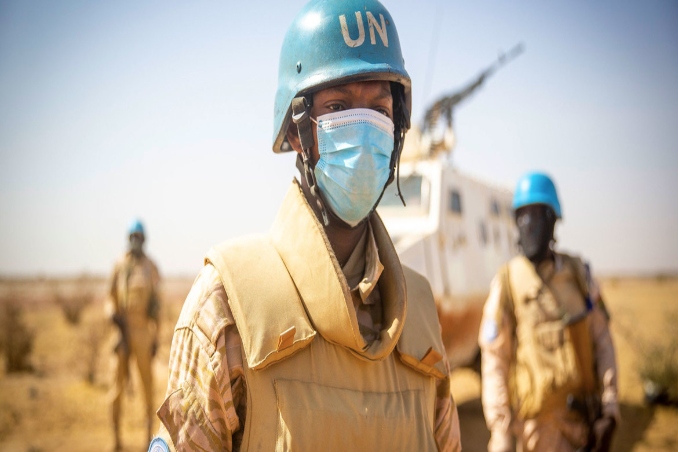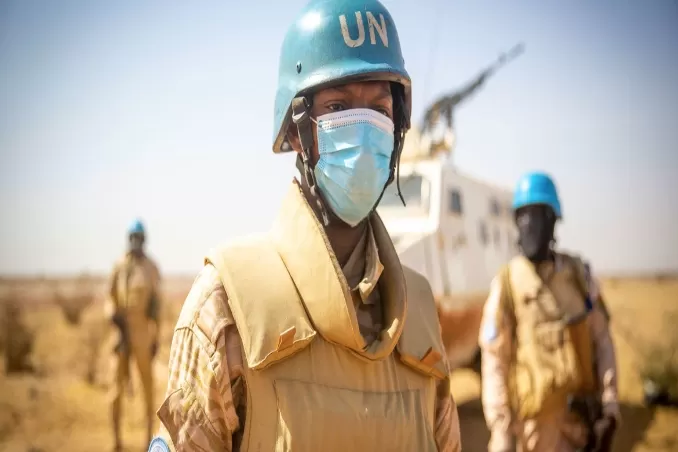

terrorist attacks in the sahel
Last updated on September 11th, 2021 at 07:55 am
“In Burkina Faso, the conflict reached record levels in May and June, with the country’s two deadliest attacks ever recorded. The attacks targeted, respectively, civilians and the Burkinabe police and occurred in Solan and Balibago “, recalls Armed Conflict Location & Event Data Project (Acled) in the report entitled “Ten conflicts to worry about in 2021,” published on August 5, just before the umpteenth deadly ambush set up yesterday for a convoy of security forces.
The escalation in Burkina Faso, Acled points out, follows the collapse of a fragile ceasefire between state forces and the Islam and Muslim Support Group (Jnim), in effect for most of 2020. In Eastern Burkina Faso, GSIM-affiliated fighters have also lobbied and isolated communities in several small towns and villages (Mansila, Takealot, Tanwalbougou, Kpenchangou, and Madjoari) by imposing embargoes that prevent circulation and trade.
“The steady deterioration of the security situation in Burkina Faso has led to widespread unrest,” the report continues. In June, thousands of people demonstrated in the cities of Dori, Titao, and Kaya. At the beginning of July, widespread demonstrations followed, led by political opposition, with the request for greater security for the population and adequate support for the Defense and Security Forces and volunteer for the defense of the homeland.
Although the Burkinabe armed forces have intensified their efforts through numerous military operations across the country, “they have not sufficiently weakened the capabilities of jihadist groups. Moreover, the largely reactive and transient nature of their operations makes them predictable, thus causing only very temporary disruptions,” Acled writes.
In Mali, as in Burkina Faso, the conflict reached near-record levels between April and June 2021. The political upheaval following a second military-led coup in May 2021, nine months after a previous coup in August 2020, has done little to alleviate Mali’s precarious position as the epicenter of the regional conflict. “Rather, it has put a strain on relations with Mali’s main military partner,” it continues.
France, leading the military alliance against jihadist groups in the Sahel, has suspended its joint military operations with Malian forces for a month. Still, the suspension “highlighted France’s increasingly tricky position in supporting controversial regimes and undemocratic. “
Acled recalls that both Mali and Burkina Faso have started negotiations with jihadist groups with varying state involvement and “with little success.” In Mali, for example, the Ministry of National Reconciliation has instructed a delegation from the High Islamic Council of Mali to facilitate talks in Farabougou. Meanwhile, in Burkina Faso, Intelligence has been negotiating with the GSIM. Many agreements, however, have been negotiated directly between local communities and militants from the al-Qaeda-affiliated group.
In a June 2021 report, Acled assessed the fragility and difficulty of supporting these regional agreements. One such ceasefire agreement in Farabougou – which entered into force in April 2021 after a six-month embargo by the militants of Katiba Macina, who are part of the GSIM – was lifted by the group in early July. Hostilities between Katiba Macina militants and Bambara hunters are now rapidly resuming. The embargo tactic is an integral part of the jihadist strategy. In eastern Burkina Faso, the Mali militants also use this tactic in other places, such as Dinangourou, Mondoro, Pitaka, and Bandiagara.
The report does not fail to mention that the death of Chadian President Idriss Deby Itno, a strategic partner of France, further weakened the alliance to fight jihadist militancy in the Sahel. France also announced, on 10 June, the end of the Barkhane operation, underway since August 2014, together with the gradual withdrawal of troops stationed in the Sahel and the closure of bases in northern Mali.
The decision “is part of a transformation of French efforts in the Sahel to build a broader coalition with greater burden-sharing with other European countries as part of the Hakuba Task Force. Meanwhile, they are seeking more support and cooperation with the United States, as the two countries have signed a new agreement that it will allow French and American special operators to work more closely in counter-terrorism operations in Africa “.
Another dimension is the “Sahelization” of the broader effort, in which Sahel states take on greater responsibility for their security. For example, in June, a series of simultaneous joint operations were conducted over vast territories in Burkina Faso, Mali, and Niger with an unprecedented level of coordination, involving troops from Burkina Faso, Chad, France, Mali, Niger, and the Ivory Coast.
These operations could be a test of an emerging dynamic of “Sahelization.” However, the Acled researchers write, it is questionable whether local state forces will maintain a sufficient level of coordination and support this type of operations in the long term, given the logistical challenges and the lack of intelligence and aircraft.
Disaster teams in KwaZulu-Natal stand ready to respond to persistent rainfall while drivers should approach roads with care. According to…
Starlink the satellite internet company by Elon Musk is growing fast in Africa. It now works in more than 20…
Chinese production companies directly offer their luxury products at wholesale rates online because they were created for luxury retailers. Social…
Cricket South Africa reveals a new ODI squad for 2023 competitions as Proteas women's team and presents fresh players alongside…
African content is getting more attention around the world. While Nigerian films (Nollywood) are already well-known, East Africa—especially Kenya—is starting…
During seven intensive training days, the South Sudan Football Association educated its referees in Rumbek. The organization (SSFA) trained 30…
This website uses cookies.